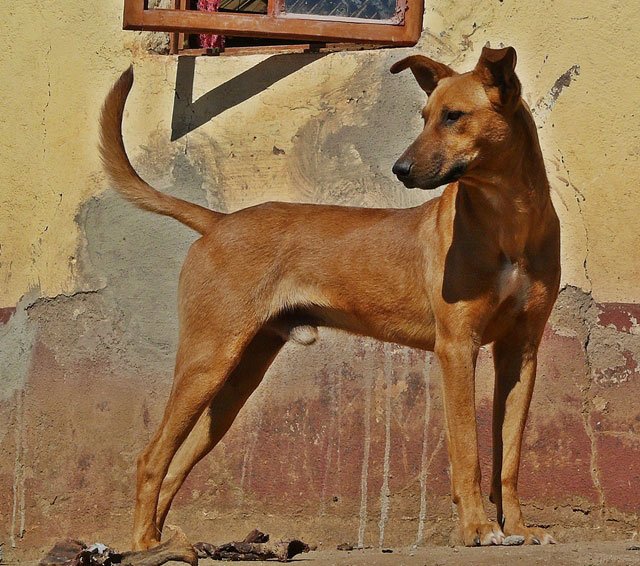Black History Month
Happy Black History Month! We are celebrating by showcasing some of the many breeds that call Africa home! As the world’s second-largest continent, Africa is home to many exotic animal species. Tourists travel from all over the world for Africa’s famous safaris, but overlook the diverse domestic dogs that the continent has to offer. These breeds vary enormously and have unique appearances, temperaments, and history. Some breeds are widespread across the globe, while others only exist in Africa.
Basenji
Basenjis are small, compact, yet athletic dogs. They are excellent hunting dogs. The Basenji produces an unusual yodel-like sound, due to its unusually shaped larynx. This trait also gives the Basenji the nickname the “barkless” dog. A breed from the northeaster Congo region, their name in the native Lingála language means do of the villagers. Another local name is m'bwa m'kube, 'mbwa wa mwitu "wild dog". The Basenji also has a long history of domestication, proving that they make top-notch pets. The breed is depicted in ancient Egyptian artifacts, and Basenjis can also be found in ancient Babylonian and Mesopotamian art.
Boerboel
The Boerboel is an African mastiff type breed from South Africa. This breed descends from colonial breeds of mastiff and bulldog. They were originally bred as guard dogs on remote farms and for big game hunting. Their may look like big, powerful, and intimidating breed but in reality Boerboels are gentle giants. They are incredibly intelligent, loyal companions, and are exceptionally great with kids. They are a wonderful family guardian dog. The boerboel, translated as the “farmers dog,” was kept by farmers due to its fearless attitude and protective nature.
Rhodesian Ridgeback
The Rhodesian Ridgeback was bred as a cross between the native ridge Khoikhoi dog with European breeds such as terriers brought by Dutch colonizers. A large mix of scenthound and sighthound, originally bred in the Southern African region of Rhodesia in 1922. Shortly after, in 1927, the breed was recognized by the South African Kennel Union. Hunters found the ridgebacks were well suited for confronting lions, making them excellent hunting dogs. They excelled at fending off leopards and monkeys. They could hunt prey like antelope as well. The Rhodesian Ridgeback is currently the only registered breed indigenous to Southern Africa.
Africanis
Africa's indigenous dogs may be descended from ancient Egyptian dogs found throughout the Nile Delta around 5,900 years ago. It is believed the descendants of these dogs spread throughout Africa with tribal movements, first throughout the Sahara and finally reaching southern Africa around the 6th century AD.
The Africanis has almost always been attached to human settlements in southern Africa. The dogs could have been used to help herd sheep, goats and cattle, guard against predators and help their human companions in the hunt. The Africanis has been known by a number of names. These include the Bantu dog, umbwa wa ki-shenzi ("traditional dog" in Kiswahili, the Khoekhoe dog, the Tswana dog and the Zulu dog. Other local names include Sica, Isiqha, Ixhalaga, Ixalagha, Isigola, I-Twina and Itiwina. In older texts the potentially offensive terms 'kaffir dog', 'kaffir brak' or 'kraal dog' were also used.
Aidi
Even though this breed hails from the hot African continent, the Aidi’s coat is actually thick, dense, and soft to the touch. Their plush coat is one of the reasons why the Aidi reminds owners so much of traditional sheepdogs. The breed was originally developed in Morocco to protect its owners from predators in the mountains where they worked. Because Aidis are smart, protective, and loyal, they became popular pets. The American Kennel Club does not currently recognize the breed, but it is recognized by several other canine organizations and continues to prove its excellence in North Africa.








